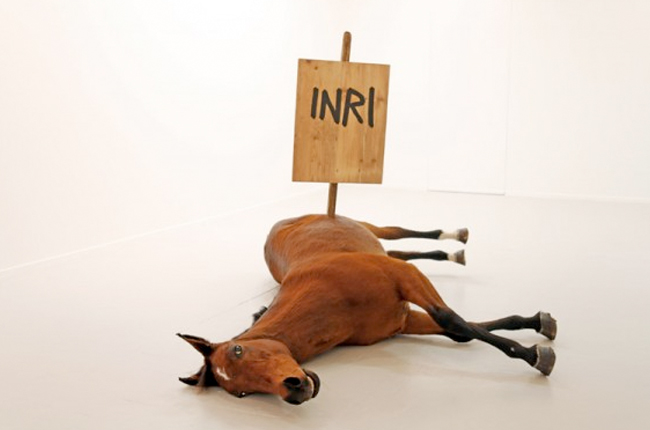Twenty Years after its initial release, Sage Francis’s Personal Journals persists as one of the most vulnerable and authentic albums in hip-hop, one that displays a master emcee at the height of his talents…

by: Michael Shields
While far from a household name, and possibly even an outlier to commonplace hip-hop fans, Sage Francis is a legend to underground hip-hop heads. The lion’s share of that status can be traced directly back to the 2002 classic Personal Journals, dropped in mid April of that year. Yet preceding the album’s release, Francis had already been garnering respect and praise within the hip-hop community. Three years prior, the Rhode Island rapper was navigating the battle rap circuit with fervor, winning the Superbowl MC Battle in Boston in 1999, beating Esoteric (of the hip-hop duo 7L & a third of Czarface). A year later he won the famed Scribble Jam MC Battle by besting Columbus, Ohio rapper and one half of the duo Soul Position (along with producer RJD2), Blueprint. In 2001, Francis made waves in a much different fashion, offering a biting critique of the United States government in the wake of a national tragedy.
As a nation united by anger cried for war and vengeance after the September 11th terrorist attacks, Francis appropriately called out America’s hypocrisies and tendencies to utilize tragedies to increasingly seize power and control. Pointing out how calls for revenge will assuredly lead to more unnecessary hurt and suffering, Francis spit “While a camera man creates news and shoves it down our throats on the West Bank / with a ten second clip put on constant loop to provoke U.S. angst / so get your tanks and load your guns and hold your sons in a family huddle / ‘cause even if we win this tug of war, and even the score, humanity struggles.” “Makeshift Patriot,” which could be found on the mixtape The Known Unsoldier, became an internet sensation, widely circulated for free and exhibiting Francis’s dynamic abilities and enlightened worldview. Soon thereafter Francis brought to life his magnum opus.
Personal Journals is the first solo studio released by Francis, put into the world by the underground hip-hop collective Anticon in 2002. The ambitious eighteen track album featured dazzling production from a grouping of all-too-unheralded producers including Sixtoo, DJ Mayonnaise, Jel, Scott Matelic, Reanimator, Alias, Odd Nosdam, Controller 7, Joe Beats, and Mr. Dibbs. It’s a deeply personal album where Francis wears all of life’s suffering on his sleeve while inviting listeners to join in on a tour of the tortured, introspective mind of a gifted storyteller. While decisively weighty, Personal Journals is also witty, and full of hard-hitting old school boom bap hip-hop brimming with a slam poetry ethos.
Opening the album with a song entitled “Crack Pipes,” an allusion to how fragile humans can be, how the hardships of life have the ability to fracture even the strongest of us, was a statement and a sign of things to come. “Crack Pipes” leads into “Different,” where Francis states the aim of the album: “By the end of this record I’ll make sure all of yall know who Sage Francis is.” For starters, foundation information about Francis’s rise are laid out: “Poetry struck a nerve in the listenership / spoken word then got ’em all interested / now I don’t have to serve ice cream to little kids / I serve emcees who think they’re rippin’ it / and poets who think they’re somehow significant.” The drop of the upright baseline in “Different” is a particular highlight of the album, in a song that makes it well known listeners are not dealing with your typical emcee here, this one is “different, in a different way.”
We learn more about who Francis is in the title track, where he describes himself as an “anti-socialite…secret admirer / student loaner…continental drifter / professional bootlegger…spin doctor / self-referentialist…personal journalist,” before family matters come to light in “Inherited Scars.” Within this deeply intimate journey of a song, Francis introduces the audience to his sister and explores their shared family trauma. Over a smooth beat paired with a melodious saxophone bellow, Francis reveals the enduring guilt he feels of believing he wasn’t appropriately there for his sibling whom he cared about profoundly.
It is unclear exactly who the subject of “Broken Wings” is, but it is assuredly someone Francis also cares about deeply. Someone who inspires him. Someone who is a “fairy with broken wings,” whom he would watch perform. Someone different like Francis, who doesn’t “even need wings to fly.” Regardless of whom Francis biographized in “Broken Wings,” the track is as tender a hip-hop song you will come upon. The remarkably titled and bumping “The Strange Famous Mullet Remover” that follows persists as a brilliant ode to hip-hop. A tribute to the genre that shaped Francis, and served as an expressive outlet that got him through, most assuredly was deserving of a chapter in these personal journals.
The self-deprecating, hilarious, and ultimately deep AF “Smoke and Mirrors” brazingly drives into “Message Sent,” a track that outlines how much of an alien Francis feels in this world, and how failure finds him time and again. “I go place to place without enough money to put a bed under me / I share my sleeping space with rodents, insects, and dust bunnies / I laugh at the mess I’ve created for myself until it gets unfunny / but I’m content in the fact that they don’t expect respect, sex, love, or trust from me,” Francis spits unabashedly.
“EvictionNotice,“ a song introduced as one about how drugs are “a gateway to fun and flat laugh lines,” depicts Francis’s mother fighting with her live-in boyfriends and opens the door a measure more on the gifted rapper’s agitated upbringing. “Pitchers of Silence” touches on that relatable feeling of never fully belonging, yearning for a place, a person, that feels like home — “I’m in my last days now. There’s a change coming soon / I just want to crawl back into my mother’s womb / I need a comfort zone / but obviously I need to find another home / to call my own…and always return to / and I want it to be you.”
“Specialists” digs into Francis’s inability to give over to love, even to that special somebody who seems beyond worthy of it. “Hopeless” an acapella track performed live, exhibits just how formidable a slam poetry force Francis is. Uniquely, that stripped down, sparse track leads into the hardest juncture on the album, a metal-infused banger called “Kill Your Mother,” calling overt attention to the diverse experiences Personal Journals offers. “Cup of Tea” takes us deep inside the conflict so many of us have with our inner dialogue, the critic within that just never lets up.
On “My Name is Strange,” backed by the six-piece band AOI, Francis spits over a remixed beat of “Turn The Page ” by Bob Seger. Paired with a flute overtone, he jestfully croons about life as a working emcee on the grind, “Later in the evening, as you lie awake in bed / with the echoes from the amplifiers ringin’ in your head / you smoke the day’s last emcee, ridiculing what he said.” “Runaways” closes the album with some vital, welcome hope. In it, Francis implies the future is unknown and full of possibility: “It’s not where you’re from, not where you’re at / and that journey leads to where / It’s where you’re going…and I am going home…” Yet that coveted place to call home, for a unique soul like Francis, might not be the cathartic oasis most would expect as he adds, “home…/ to the land of the lost souls/ feeling a loneliness that really only exists in abandoned foster homes.” The inner struggle endures, as such is life.
Personal Journals, like few hip-hop albums ever birthed, is an amazing display of fearless honesty and it’s easy to look at the lyrical offerings of Personal Journals as akin to Francis pulling wide his scar tissue and narrating a detailed, candid tour of their frayed innards. It’s hard to think that rappers such as Tyler the Creator, Dave, Logic, Isaiah Rashad, or Denzel Curry would feel so comfortable bearing their faults without trailblazers like Sage Francis who lead the way. Sage Francis’s career following Personal Journals is prodigious, and exploring his ensuing work is rewarding campaign unto its own, but it was Personal Journals, a respectable rigid self-examination of an album, flush with soul-baring lyrics, that will persist as the crown jewel of Francis’s legacy. What’s so impressive, ultimately, is regardless of how intensely serious the album’s themes and revelations endure as, Personal Journals is nothing if not a hell of a good time.






Comments are closed.